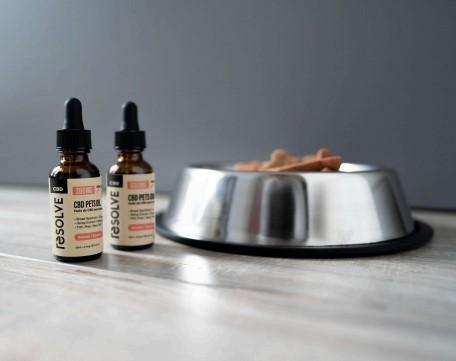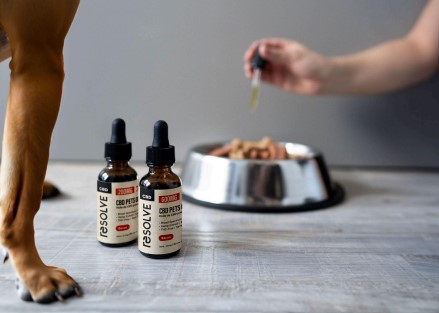
Pet anxiety is a common problem that affects numerous animals, yet many pet owners often fail to recognize it. As our understanding of animal behaviour and mental health deepens, so does our capability to identify and alleviate the anxiety that afflicts our furry friends. Many people overlook this silent struggle, which is characterised by various psychological stresses. However, in recent years, there has been a change in the narrative surrounding pet mental health support in Canada. With growing awareness and understanding, the importance of addressing our pets’ emotional well-being, including utilising CBD for dogs, has come to the forefront.
Common Causes of Pet Anxiety
Pet anxiety can stem from various sources, each contributing to the complexity of this condition. Some of the primary triggers and causes of pet anxiety include the following:
●Separation Anxiety: Distress when a pet is left alone, may often lead to destructive behaviour or vocalisation.
● Noise Sensitivities: Fearful reaction to loud sounds like thunder or fireworks, can cause panic or hiding.
● Abrupt Environmental Changes: Stress induced by sudden changes in surroundings, such as moving to a new home, may disrupt a pet’s sense of security.
Understanding these causes is the first step in effectively applying pet stress management techniques, gradually building toward empathy and action, which provides a foundation for exploring the deeper nuances of pet anxiety.
Spotting the Symptoms of Anxiety in Animals
Recognizing the signs of pet anxiety requires attentive observation. Below are three potential signs that may signal that your pet is experiencing some degree of pet anxiety.
1. Behavioural changes may include excessive barking, unexplained aggression, or withdrawal.
2. Physical symptoms can manifest as restlessness, panting, or excessive grooming.
3. Routine changes, such as altered eating or sleeping patterns, also serve as critical indicators.
These signs, often subtle, are the first cries for help from our pets, urging us to look closer and act with compassion.
Traditional Approaches: Managing Pet Anxiety
Building a sense of security for our pets is pivotal. Traditional management strategies, such as behavioural training and creating safe spaces, lay the groundwork for a stable environment. Regular exercise and play also play a crucial role, helping to alleviate stress and build confidence. These time-honoured techniques remain at the heart of anxiety management, offering a solid base upon which to build.
Natural Remedies: Nutrition and CBD Solutions
Nutrition and CBD emerge as powerful allies. As pet owners increasingly seek gentler, more natural remedies, CBD solutions have emerged as a promising option for anxiety relief. Derived from the cannabis plant, CBD-infused products offer potential health benefits without the psychoactive effects associated with THC. These natural remedies for pet anxiety in Canada have the potential to provide calming effects and offer a natural solution to soothe anxious pets.
Choosing the Right CBD Products for Your Pets
When it comes to your animals well-being, choosing between CBD oil for dogs and cats or CBD pet treats is essential. We recommend that you look into resolveCBD, a reputable Canadian health and wellness brand whose goal is to offer both affordable and effective plant-based CBD options.

resolveCBD products are meticulously crafted using whole hemp plant extracts, emphasising full-spectrum CBD & Broad Spectrum CBD options suitable for both owners and pets.
Here’s why resolveCBD stands out:
● Their offerings are sourced from organic hemp, ensuring they’re free from pesticides and harmful chemicals.
● Every product is accompanied by third-party lab test results, ensuring purity, potency, and safety.
● Specifically formulated for pets, with clear dosing instructions to simplify administration.
For more information, visit resolveCBD for a range of pet CBD products and a dosage guide tailored to meet your pet’s unique needs.
Alternative Therapies for Anxious Pets
For those seeking alternative treatments, various therapies for anxious pets, as well as calming techniques for dogs in Canada, are available, such as:
Aromatherapy
Using essential oils or scents to promote relaxation and alleviate stress or anxiety in pets through inhalation or topical application.
Massage Therapy
Applying gentle manipulation of muscles and tissues to improve circulation, reduce pain, and enhance relaxation in pets.
Music Therapy
Utilising specific sounds or music compositions to calm pets, reduce anxiety, and promote a sense of well-being.
Positive Reinforcement Training
Rewarding desired behaviours with treats, praise, or toys to encourage their repetition helps pets learn through positive associations.
Clicker Training
Using a clicker paired with positive reinforcement, such as CBD dog treats, to condition pets to associate the click sound with rewards has the potential to facilitate precise communication and efficient learning of desired behaviours.
Hydrotherapy
Exercising pets in water, typically through swimming or underwater treadmill sessions, to improve mobility, muscle strength, and overall physical fitness.
Play Therapy
Engaging pets in structured play activities may promote mental stimulation, build confidence, and strengthen the bond between pet and owner.
Frequently Asked Questions:
What are the signs of anxiety in pets?
Anxiety in pets can show up in various ways, often depending on the animal. However, some common signs across different pets include:
● Excessive barking or meowing: Constant vocalisation is a clear call for attention or help.
● Destructive behaviour: Chewing, scratching, or destroying furniture can be a sign of distress.
● Pacing or restlessness: When your pet seems unable to settle down, it might be anxious.
● Withdrawal: Hiding or avoiding interaction can also indicate anxiety.
● Changes in bodily functions: More frequent urination or changes in appetite can be signs too.
● Excessive grooming: Over-grooming to the point of causing skin damage is often a sign of stress in pets.
Can all pets use CBD products safely?
CBD products are gaining popularity for managing anxiety and other conditions in pets. However, not all pets can safely use CBD products. The safety and efficacy of CBD can vary based on the type, size, and health condition of the pet. Your dogs and cats may respond differently to CBD, and products should be specifically formulated for pets, not humans.
Always consult with a veterinarian before introducing CBD for dogs into your pet’s regimen, as they can provide personalized advice based on your pet’s health history.

How can I create a safe space for my anxious pet?
Creating a safe space for an anxious pet is all about offering a secure and comforting environment where they can retreat when overwhelmed. Here’s how:
● Dedicate a quiet area: Choose a low-traffic area of your home where your pet can relax undisturbed.
● Include familiar items: Add their favourite blanket, toy, or bed to make the space comfortable.
● Consider a crate for dogs: Many dogs find crates reassuring, but it’s important to introduce them as a positive space, never for punishment.
● Play calming music: Soft, soothing tunes can help calm nervous pets.
● Keep it accessible: Ensure your pet can access this safe space anytime they feel anxious.
What dietary changes can help reduce pet anxiety?
Diet plays a significant role in a pet’s mental health. Here are some tips to help reduce your pets anxiety through diet:
● Omega-3 fatty acids: Found in fish oil, has the potential to help reduce anxiety levels.
● High-quality protein: Ensures your pet gets all essential amino acids, which are crucial for brain health.
● Avoid artificial additives: Some pets may be sensitive to artificial colours, flavours, or preservatives, which can exacerbate anxiety.
● Probiotics: May help manage anxiety by improving gut health, which is closely linked to mood regulation.
Always consult your veterinarian before making significant changes to your pet’s diet.
When should I consult a professional about my pet’s anxiety?
If your pet’s anxiety is persistent, severe, or negatively impacts their quality of life, it’s time to consult a professional. Here are some indicators that professional help is needed:
● No improvement with home remedies: If your efforts at home don’t seem to ease the anxiety.
● Self-harm: If your pet is injuring themselves due to anxiety.
● Aggressive behaviour: If anxiety leads to aggression towards people or other animals.
● Significant changes in behaviour or appetite: These could indicate that the anxiety is affecting their health.
Professionals like veterinarians, animal behaviourists, or veterinary behaviourist can offer tailored strategies, which may include behaviour modification, environmental changes, and possibly medication to manage anxiety effectively.
Understanding your pet’s emotional well-being is crucial for their overall health. By recognizing the signs of anxiety early and taking appropriate steps, you can help ensure your furry friend leads a happy, stress-free life.

Conclusion
Managing pet anxiety demands a holistic approach, blending traditional methods with innovative solutions. By embracing a comprehensive strategy and integrating pet anxiety solutions in Canada, pet owners can navigate the complexities of pet anxiety with confidence. This journey, though challenging, reinforces the bond between pets and their owners, ensuring a happier, healthier life for our beloved companions.
———————————————–
DISCLAIMER: Information and products promoted are not intended to diagnose, treat, cure, or prevent any disease or ailment. Nor is it intended to be a substitute or alternative for professional medical advice. Always consult with a licensed healthcare professional regarding medical treatment or potential interactions with prescribed drugs. Products featured are intended for responsible use and should be used as directed by individuals who are 19 years of age or older.






